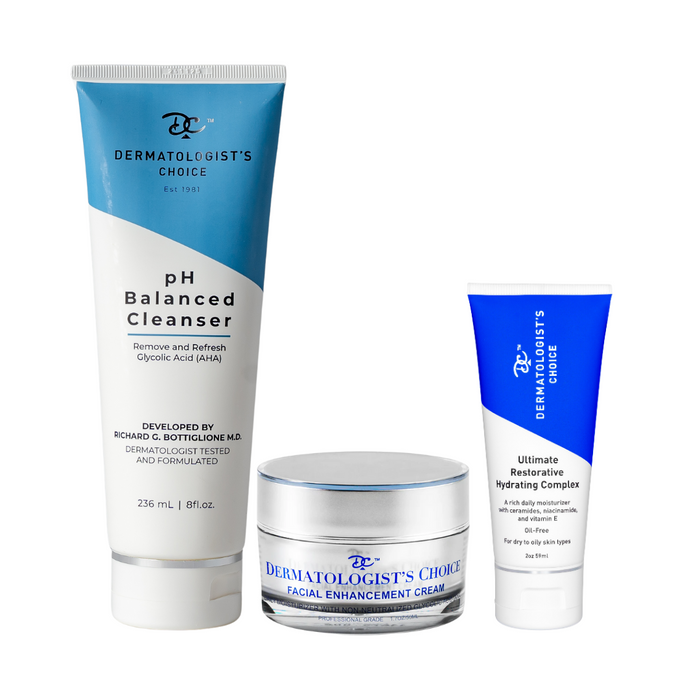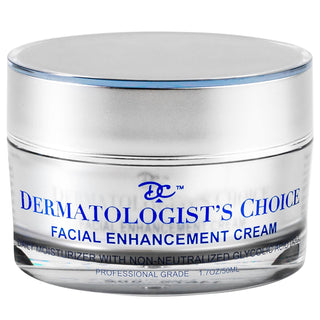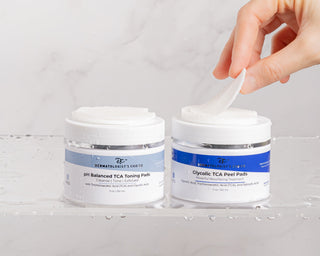
Retinol is one of the most talked-about skincare ingredients, but do you really need it in your 20s? While many believe it's a miracle ingredient for anti-aging, Dermatologist Dr. Bottiglione sheds light on what retinol actually does, how it compares to stronger ingredients like glycolic and TCA acid, and the lifestyle factors that influence your skin’s long-term health.
Can You Use Retinol with Vitamin C or Niacinamide?
A common skincare question is whether retinol can be used alongside other active ingredients like vitamin C or niacinamide. According to Dr. Bottiglione:
“For most, yes, it's fine to use alongside other ingredients. A lot of ingredients are just moisturizing. Most people don't understand retinol is the inactive form of the prescription RetinA, so it's not as much of a concern when mixing with other ingredients because it's not active.”
Unlike prescription RetinA, which is potent and can cause irritation, over-the-counter retinol is a gentler, inactive form that requires conversion in the skin to become effective. This means that for most skin types, it can be safely combined with vitamin C or niacinamide without worrying about adverse interactions. However, if you have sensitive skin, introducing actives gradually is always best.
Should You Use Retinol on Your Neck and Chest in Your 20s?
Many people in their 20s wonder if they should extend their retinol use beyond the face. Dr. Bottiglione shares his perspective:
“Sure, again it won't do much in terms of anti-aging or exfoliating. I recommend other ingredients that are active like glycolic and TCA acid. TCA and glycolic are ingredients you can use on your body to help with exfoliation, and some find it helpful for KP, which are those tiny bumps most commonly on the back of your arms or legs.”
While retinol is widely marketed for anti-aging, Dr. Bottiglione emphasizes that it may not be the most effective ingredient for areas beyond the face. Instead, he recommends glycolic acid and TCA (trichloroacetic acid), which actively exfoliate and improve skin texture. These ingredients can be especially helpful for those struggling with keratosis pilaris (KP) or uneven skin tone.
For individuals in their 20s, glycolic and TCA acids are particularly beneficial because, even in lower concentrations, they help reduce wrinkles and dark spots over time. Consistent use in your 20s and 30s can lead to visibly healthier, more youthful-looking skin in your 50s and beyond.
How Do Lifestyle Choices Affect Retinol’s Effectiveness?
Beyond skincare products, your lifestyle plays a crucial role in determining how well retinol and other ingredients work. Dr. Bottiglione highlights the biggest factor that can impact your skin:
“Getting a lot of sun will wreck the skin results you're trying to achieve. A lifestyle with sun exposure is most impactful. Your genes determine a lot of how your skin will be in addition to lifestyle choices.”
UV exposure is one of the leading causes of premature aging. If you’re using retinol but not protecting your skin with sunscreen, you could be undoing all of its potential benefits. Wearing SPF daily, avoiding excessive sun exposure, and maintaining a skincare routine with active ingredients can help ensure long-term skin health.
The Bottom Line: Retinol vs. Active Acids in Your 20s
While retinol can be a useful ingredient, Dr. Bottiglione emphasizes that it’s not the most powerful option for those seeking real anti-aging and exfoliating benefits. If you’re looking to improve skin texture, fight fine lines, or address body concerns like KP, glycolic acid and TCA are more effective choices.
Additionally, no skincare ingredient can work miracles if your lifestyle choices—like excessive sun exposure—are harming your skin. Prioritizing sun protection, a well-balanced routine, and active ingredients will set you up for glowing, youthful skin for decades to come.
Looking to upgrade your skincare routine? Explore dermatologist-approved glycolic and TCA products from Dermatologist’s Choice for real, visible results.















